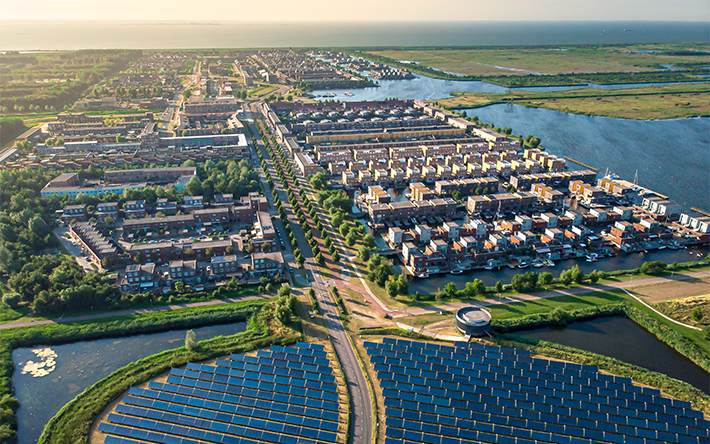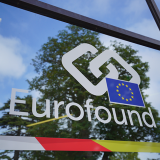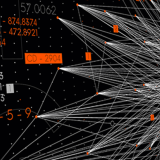
Foregribelse og styring af konsekvenserne af forandringer
Foregribelse og styring af konsekvenserne af forandringer er en af de seks hovedaktiviteter i Eurofounds arbejdsprogram for perioden 2021-2024. Eurofound vil fremlægge dokumentation for den strukturelle udvikling, der påvirker EU's økonomi og arbejdsmarkeder, som i vid udstrækning er drevet af digitalisering og overgangen til en CO2-neutral økonomi , men også af covid-19 -krisen. Denne forskning har til formål at hjælpe politiske beslutningstagere med at foregribe udviklingen og forberede de europæiske arbejdsmarkeder og arbejdspladser på disse ændringer.
Fra 2021 vil Eurofound give indsigt i disse megatendensers indvirkning på leve- og arbejdsvilkårene i EU. På digitaliseringsområdet vil forskningen fokusere på indvirkningen på beskæftigelse og arbejdsvilkår samt på arbejdsmarkedet. De områder, der skal dækkes, vil omfatte den sociale dialog og dens rolle i udformningen af strukturelle ændringer, lovgivningsmæssige rammer, social beskyttelse og kunstig intelligens (AI). Med udgangspunkt i tidligere forskning om platformsarbejde vil perioden 2021-2024 være en mulighed for at fokusere på kortlægning og vurdering af de politiske initiativers effektivitet med hensyn til håndtering af de udfordringer, der identificeres med platformsarbejde.
Eurofound vil også bestræbe sig på at støtte EU's overgang til en CO2-neutral økonomi, herunder den cirkulære økonomi og gennemførelsen af EU's genopretningsinstrument NextGenerationEU, ved at undersøge de socioøkonomiske virkninger. Disse omfatter ændringer i beskæftigelsen og forandring af job og arbejdsvilkår samt de fordelingsmæssige virkninger af klimaændringspolitikkerne. En del af dette arbejde vil bygge på resultaterne af et pilotprojekt om den fremtidige produktion (FOME) udført af Eurofound.
Eurofound vil fortsætte dette arbejde i 2021-2024 i samarbejde med forskellige internationale organisationer og EU-agenturer, f.eks. Det Europæiske Miljøagentur (EEA), hvad angår de sociale konsekvenser af klimaændringspolitikkerne. Desuden vil det eksisterende samarbejde med andre forskningsaktører inden for digitalisering — Det Fælles Forskningscenter (JRC), Agenturet for Grundlæggende Rettigheder (FRA) og Det Europæiske Arbejdsmiljøagentur (EU-OSHA) — blive konsolideret. Der er også planer om yderligere partnerskab med Den Internationale Arbejdsorganisation (ILO) om et arbejdsmarked i forandring.
- Infografik: Foregribelse og forvaltning af forandring i EU

































